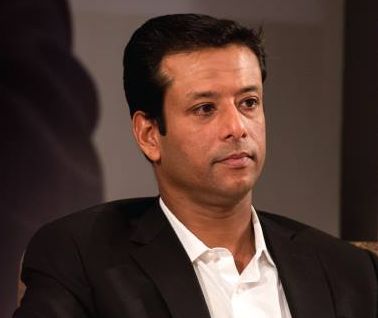If Rahul Gandhi can walk up to Narendra Modi in Parliament and embrace him after bitterly attacking his government, why can’t Bangladesh have a similar culture?
Sajeeb Wazed Joy, son of Bangladesh Prime Minister Sheikh Hasina, was comparing his country’s politics with India’s a day before 10.4 crore people vote to elect the next government in Dhaka.
“Rahul walked up to Modiji and hugged him after attacking his government on the floor of Parliament. Why can’t we have similar scenes?” the Washington-based techie, who is information, communication and technology adviser to the Bangladesh Prime Minister, asked during an interview to The Telegraph.
The Congress president had locked Modi in a surprise hug after excoriating his government during a no-confidence debate in July, his subsequent wink suggesting that at least part of his objective was to unsettle the Prime Minister and go one-up on him.
Asked whether he was game for doing a Rahul, now transformed in the public imagination from a reluctant politician to a prime ministerial candidate, Joy, often described as a future Premier, said he was in two minds.
“Honestly, I’m torn on this. A part of me realises my mother cannot do it forever and that I should be here to keep the Awami League strong and play my role in Bangladesh’s progress. But the other part of me prefers a simple and ordinary life,” he said.
The 47-year-old was, however, clear about the political culture he wished for Bangladesh: “We need a democratic culture like India’s.”
Since gaining independence from Pakistan after a nine-month war and untold atrocities in 1971, Bangladesh has witnessed political assassinations, coups, military dictatorships and puppet civilian regimes in between democratically elected governments.
One striking feature of politics in the country has been the bitter and violent antagonism between those in power and those aspiring to replace them.
“I hope there will one day be an Opposition that will not kill common people or the Hindus (for not voting for them) or attack those who made up the preceding governments after coming to power,” Joy said.
“We want a vibrant and credible Opposition,” he added, implying he wouldn’t attach either tag to the Jatiyo Oikya Front (National Unity Front), the rainbow alliance of Opposition parties led by the Bangladesh Nationalist Party (BNP) and the Jamaat-e-Islami.
The Front accuses the “undemocratic” Awami League of “throttling the Opposition” and using the administration to rig Sunday’s election. But, Opposition leaders say, “a silent revolution” on polling day will bring about a change of guard.
Snap opinion polls conducted over social media by Opposition sympathisers appear to lend weight to the claim.
Joy, planning to go golfing on Saturday afternoon, did not betray any nervousness. “I can say with 100 per cent confidence that the Awami League will win the polls,” the techie, who will catch the afternoon flight to Washington DC on Sunday after casting his vote, said.
“I can say with 95 per cent confidence that our party will get 200-plus seats on its own.”
In a 300-member Bangladesh parliament, a party needs 151 seats to form the government. “With our allies, we will have around 250 seats,” Joy said.
He believes the next government’s agenda will be to continue with the steps that have placed Bangladesh among the fastest-growing economies in the world.
The Awami League manifesto talks of pushing the growth rate up to 10 per cent in the next five years. The other prominent pledges include attaining the status of a middle-income country for Bangladesh and taking the per capita income to $5,479 by 2021.
Several diplomats this correspondent spoke to cited how the Opposition had hardly raised any questions about the Awami League’s poll pledges during the campaign, saying this suggested that the ruling party’s record on economy was undisputed.
The only question that gathered some traction, especially in the western media, was whether the Opposition space was shrinking in Bangladesh following the arrest of BNP chairperson Begum Khaleda Zia earlier this year.
“We have been in power for 10 years and she was put behind bars this February. Had police and the courts been manipulated, would it have taken 10 years to imprison her?” asked Joy, swatting away allegations of vendetta politics.
He referred to the 2004 grenade attack on Hasina that killed 24 people, and the violence over the 2014 elections that claimed 300 lives.
“Their politics is about killing people. If we were like Khaleda and her son Tareq Zia (exiled in London), the BNP would not have existed,” Joy said.
Asked whether he wanted a BNP-mukto Bangladesh, like the BJP wants a Congress-mukt Bharat, he said he didn’t.
“We never wanted that. We never tried to kill Khaleda or her son. But they did (want to kill Hasina) and that’s why they don’t have the people’s trust,” he said. “For our Opposition to be vibrant and credible, they have to change their leaders. I hope that will happen some day.”











